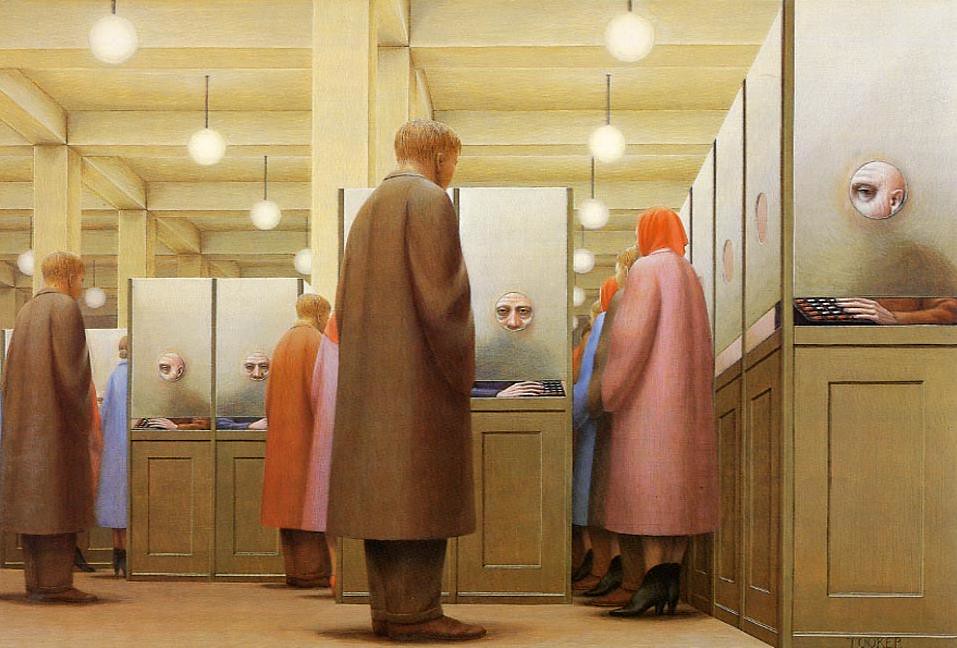Yes, C&P is an example of Dostoievisky happiness, but the russian prime trait is the variation, he have Myshkin (his most christ -like figure) which end is tragic or the absolute no-conclusive end of Brother Karamozov, where you find the optmistic, the romantic, the pessimistic all together.
In the end, with him, you have a more romantic, melodramatic start. Then he starts to shift, gets bleak, ironical. Even all the happyness of C&P is a bit of cynical.
Similar to Tolstoy, he starts with a epic-romantic novelistic size but slowly he turns his bakc to it. Ivan Illitch for example is a psychological novel about a guy dying and coming to the conclusion his life pretty much sucked. No redemption, anything. He has some very dark short stories too. But at the end, his messianic transformation, he became way simplistic and really some happy stories, with a touch of oriental parables, which everyone reckons is the worst of Tolstoy.
As Gogol, irony all the time. He is a natural born critic. Pushkin has the romantic tragedy on him. Someone humor, but most tragic characters, he is a bit like a XVIII enlightment writer turning romantic. With Turgeniev, Tolstoy and Dostoievisky russians go for the psychological novel, so you will find their dark days.
As Tchekhov, it is really a matter of short stories. Not only this he wrote, but he is neither happy or sad. Tchekhov hated to give conclusions, moral readings, etc. At some point, he started to write stories, when finished he cut the begining and end (or just one) if he tought they would only make the reader not to think and because he considered those aspects were important for him to develop the real action in the middle of the story. His editor and him had many fights about it, so sometimes he had to send the full text, but he had that sense of using only the necessary. But if you dislike short stories, there is not much to do about him.
This is all just my opinion, though. Like I said before, I'm young and not quite so well-read as many people on here, so all of my opinions should be taken with a grain of salt. I certainly don't mean to offend or disrespect anyone's favorite writers/works.
No worries, opinions are not blows, strong opinions are not strong blows.




 Reply With Quote
Reply With Quote





